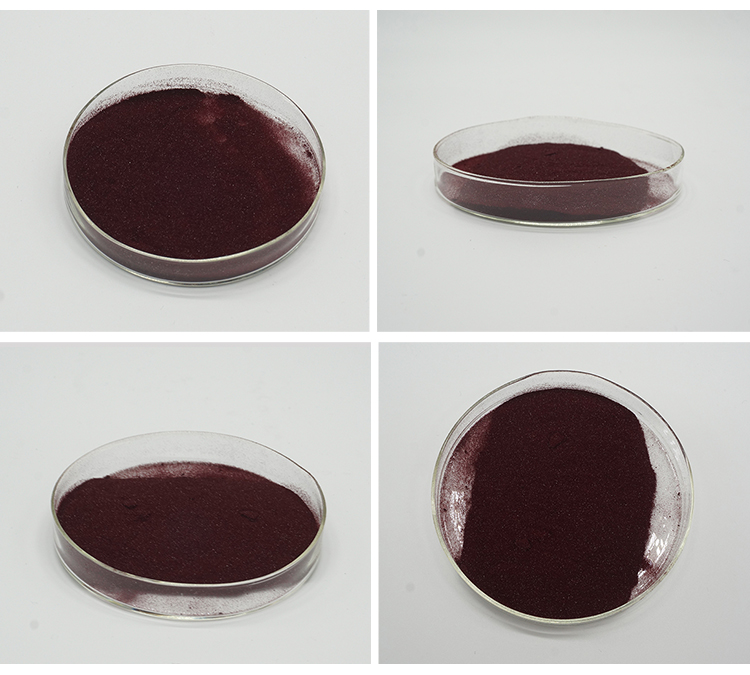1.Introduction
Mecobalamin (MeCbl), also known as methylcobalamin, is a naturally occurring and neurologically active form of vitamin B12. It is essential for brain and nervous system function and for the production of red blood cells. Mecobalamin is used to treat vitamin B12 deficiency and associated conditions such as pernicious anemia.
2.Chemical Properties
Chemical Formula: C63H91CoN13O14P
Molecular Weight: 1344.4 g/mol
Structure: Mecobalamin is a cobalamin, which includes a corrin ring with a central cobalt ion. The methyl group is attached to the cobalt ion, distinguishing it from other forms of vitamin B12.
3.Pharmacokinetics
Absorption: Oral absorption of vitamin B12 varies and can be inefficient, but mecobalamin is well-absorbed when administered intramuscularly or intravenously.
Distribution: Mecobalamin is distributed to tissues, particularly the liver, bone marrow, and central nervous system.
Metabolism: It is metabolized in the liver.
Excretion: It is excreted primarily in the urine.

4.Mechanism of Action
Mecobalamin plays a crucial role in the conversion of homocysteine to methionine, a process essential for DNA methylation and synthesis. It also supports the maintenance of myelin sheaths and is involved in the production of neurotransmitters.
5.Clinical Uses
Vitamin B12 Deficiency: Mecobalamin is effective in treating deficiencies caused by dietary insufficiency, pernicious anemia, and malabsorption disorders.
Peripheral Neuropathy: Mecobalamin has been shown to improve nerve conduction and alleviate symptoms of peripheral neuropathy, often associated with diabetes.
Amyotrophic Lateral Sclerosis (ALS): Preliminary studies suggest mecobalamin may slow disease progression in ALS, but more research is needed.
Autism Spectrum Disorders: There is emerging evidence that mecobalamin may help improve symptoms in children with autism, though further studies are required.
6.Research Highlights
Neurological Function: Studies indicate that mecobalamin can aid in the regeneration of damaged nerves and improve cognitive function in neurological disorders.
DNA Synthesis and Repair: Mecobalamin’s role in DNA synthesis and repair mechanisms underpins its importance in cellular health and prevention of certain cancers.
Antioxidant Properties: Mecobalamin exhibits antioxidant properties, which may contribute to its protective effects against oxidative stress-related diseases.
7.Dosage and Administration
Oral: Doses vary depending on the severity of the deficiency or condition being treated, typically ranging from 1,000 to 2,000 mcg per day.
Intramuscular/Intravenous: Commonly administered in doses of 1,000 mcg daily for 7 days, followed by weekly and then monthly maintenance doses.
8.Side Effects and Safety
Mecobalamin is generally well-tolerated with a low incidence of side effects. Mild adverse effects can include:
Injection site pain
Nausea
Headache
Dizziness

9.Interactions
Mecobalamin can interact with certain medications, including:
Metformin: Long-term use of metformin can reduce B12 absorption.
Proton Pump Inhibitors (PPIs): These can decrease stomach acid, affecting B12 absorption.
10.Conclusion
Mecobalamin is a vital form of vitamin B12 with significant therapeutic potential for a variety of neurological and systemic conditions. Ongoing research continues to uncover its broader applications and benefits, underscoring the importance of maintaining adequate B12 levels for overall health.
11.References
To further explore the comprehensive research on mecobalamin, the following sources can be consulted:
Herbert, V. (1994). Staging vitamin B12 (cobalamin) status in vegetarians. The American Journal of Clinical Nutrition, 59(5 Suppl), 1213S-1222S.
Scalabrino, G. (2005). Vitamin B12, demyelination, remyelination, and repair in multiple sclerosis. Journal of Neurology, 252(8), 903-904.
Kira, J. (1999). Vitamin B12 deficiency and neurological diseases. Rinsho Shinkeigaku, 39(11), 1113-1117.
These references provide a starting point for detailed investigation into the biochemical, clinical, and therapeutic aspects of mecobalamin.
